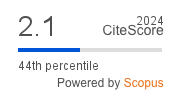Optimal sleep-state control of energy-aware M/G/1 queues
DOI:
https://doi.org/10.4108/icst.valuetools.2014.258149Keywords:
performance-energy trade-off, m/g/1, setup delayAbstract
We study the problem of optimally controlling the use of sleep states in an energy-aware M/G/1 queue. In our model, we consider a family of policies where the server upon becoming idle can wait for a random period before entering, potentially randomly, any of a finite number of possible sleep states to save energy. The server becomes busy again after a possibly random number of jobs have arrived. However, jobs are served only after a random setup time. This kind of an energy-aware queuing system has been analyzed in recent papers under specific assumptions regarding the cost metrics and the distributions of the random variables. In this paper, we consider an essentially more general model. Notably we show that the optimal control of the idle time and sleep states is deterministic and does not benefit from randomization: either the system only uses the idle state and no sleep states, or the idle state is not used at all and the server immediately goes to some fixed sleep state and waits until a fixed number of jobs have arrived before starting the setup. We prove this result for two popular cost metrics, namely weighted sum of energy and response time (ERWS) and their product ERP.
Downloads
References
Downloads
Published
Issue
Section
License
Copyright (c) 2015 EAI Endorsed Transactions on Internet of Things

This work is licensed under a Creative Commons Attribution 3.0 Unported License.
This is an open-access article distributed under the terms of the Creative Commons Attribution CC BY 4.0 license, which permits unlimited use, distribution, and reproduction in any medium so long as the original work is properly cited.




